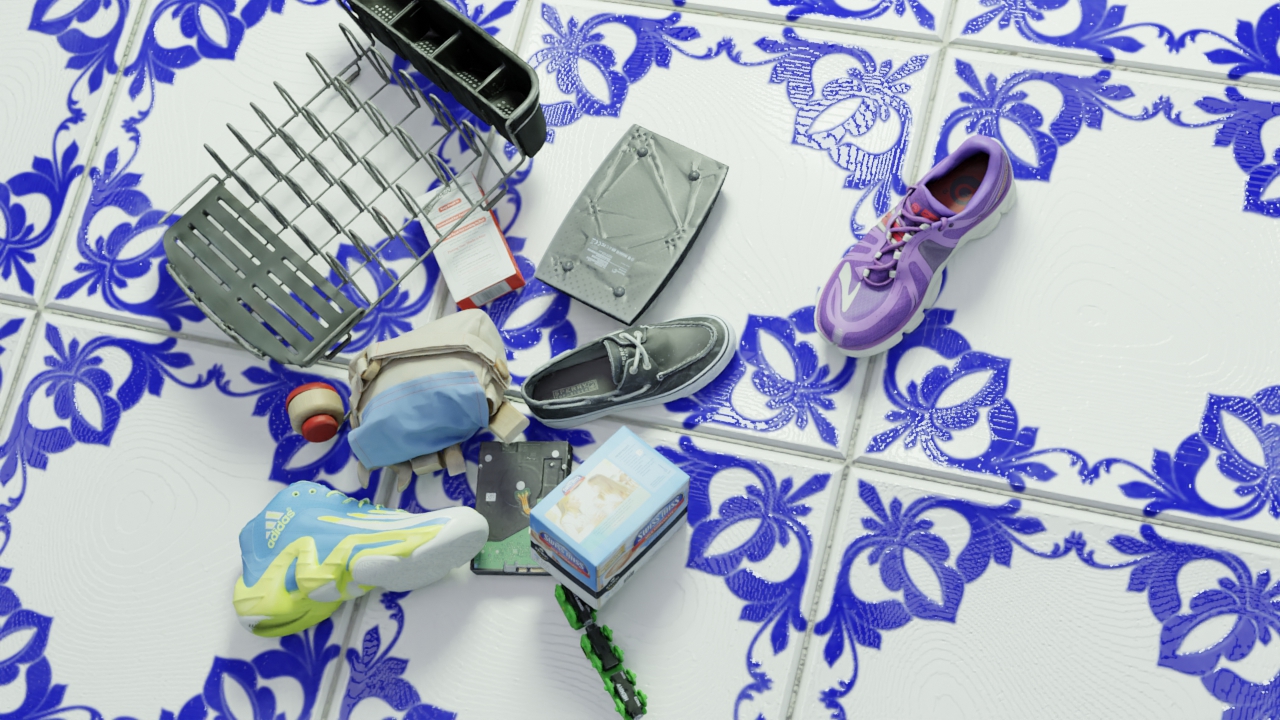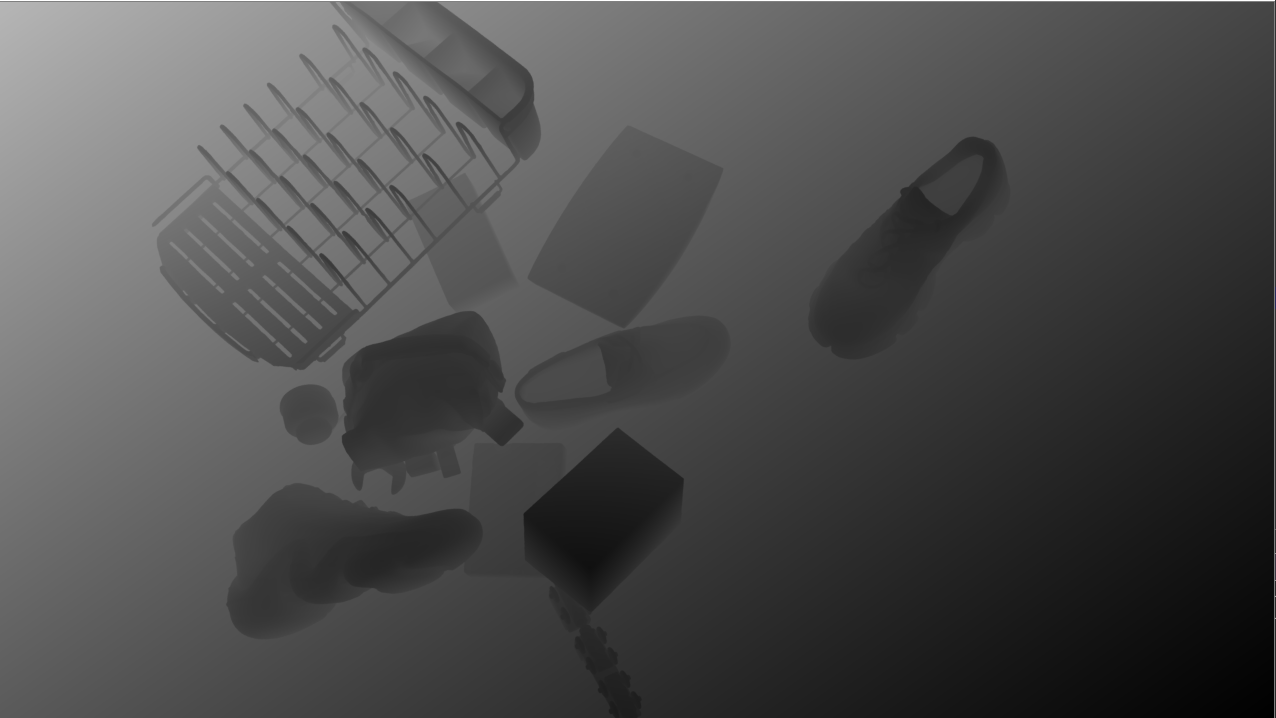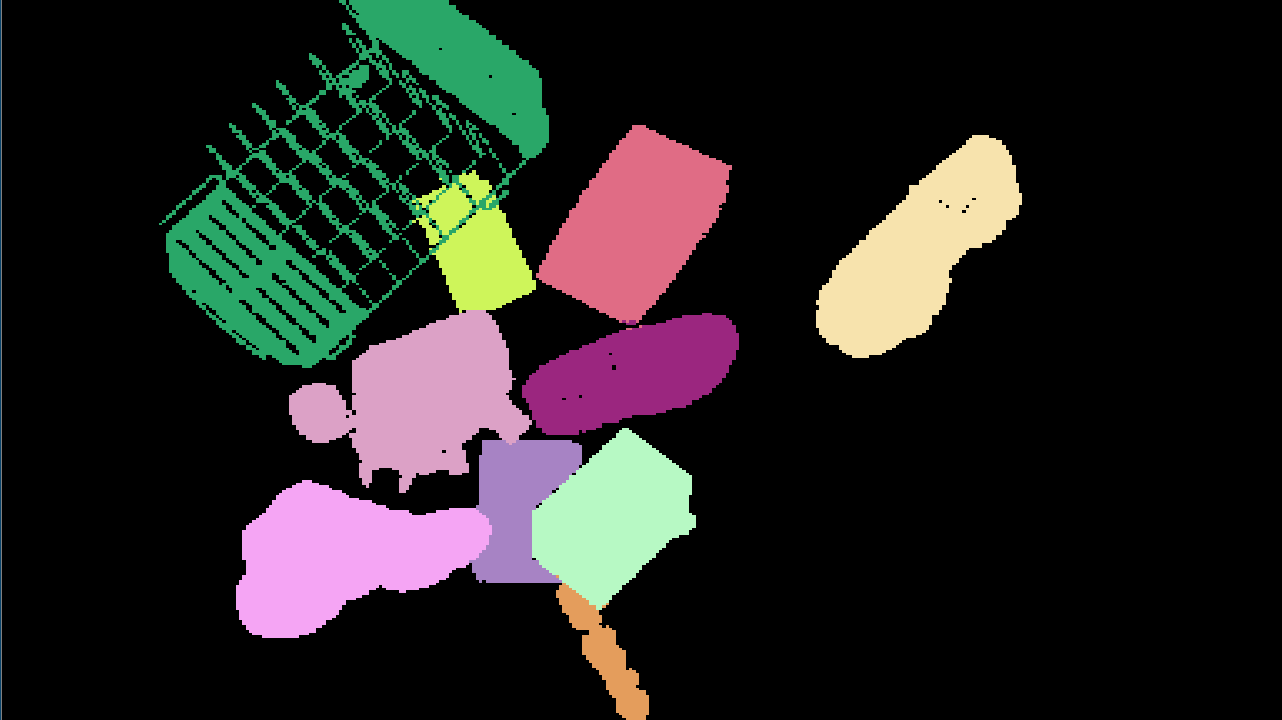RGB Images
produced by BlenderProc

Depth Images
produced by BlenderProc

Semantic Labels
produced by BlenderProc

1. Place all the data in the following structure, and there are 130 scenes in total.
|-- google1000
|-- scenes/
| |--- scene_0000/
| |--- scene_0001/
| |--- ... ...
| |--- scene_1499/
|
|-- models
| |-- 000/ # Details of model of object 0
| |-- ... ...
| `-- 1029/
|-- models_down
| |-- 000.ply # Downsampled model point cloudof object 0
| |-- ... ...
| `-- 1029.ply
|
|-- camera.json # Camera intrinsics
|
`-- graspnet_labels_v3 # correspondence lables between scenes and object models in ./models_down/; initially empty, need further labelling
2. Detail structure of each scene (take scene_0000 as an example)
|-- scene_0000
|-- blender_proc
| | |-- rgb
| | | |-- 0000.jpg to 049.jpg # 50 rgb images
| | `-- depth
| | | |-- 0000.png to 049.png # 50 depth images
| | `-- label
| | | |-- 0000.png to 049.png # 50 object mask images, 0 is background, 1-88 denotes each object (1-indexed), same format as YCB-Video dataset
| | `-- annotations
| | | |-- 0000.xml to 049.xml # 50 object 6d pose annotation. 'pos_in_world' and'ori_in_world' denotes position and orientation w.r.t the camera frame.
| | `-- meta
| | | |-- 0000.mat to 049.mat # 50 object 6d pose annotation, same format as YCB-Video dataset for easy usage
| | `-- camK.npy # camera intrinsic, shape: 3x3, [[f_x,0,c_x], [0,f_y,c_y], [0,0,1]]
| | `-- camera_poses.npy # 50 camera poses with respect to the first frame, shape: 256x(4x4)
| | `-- cam0_wrt_table.npy # first frame's camera pose with respect to the table, shape: 4x4
|
`-- object_id_list.txt # ids of objects appeared in this scene
Copyright © 2021 Machine Vision and Intelligence Group, Shanghai Jiao Tong University.